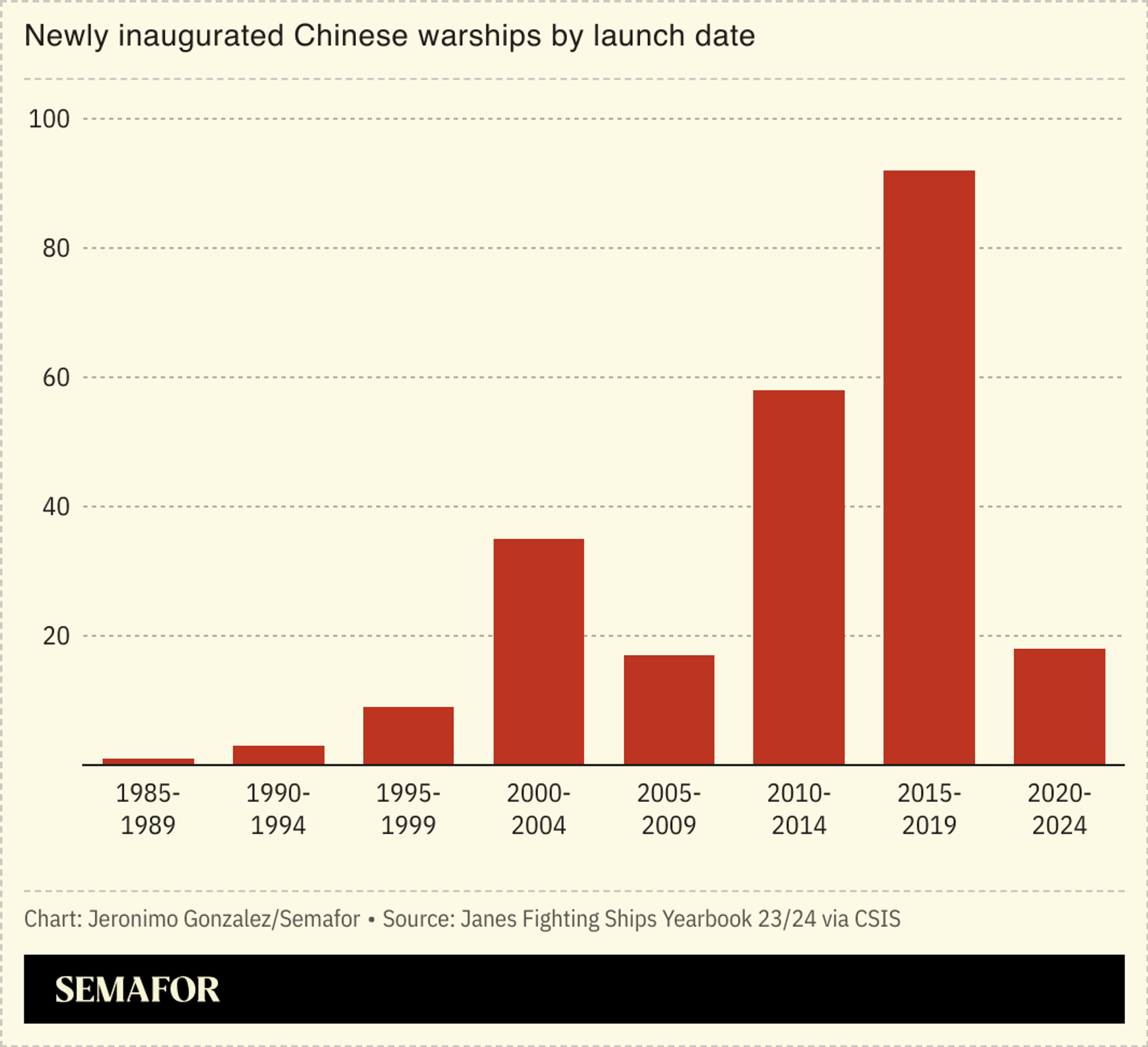The News
China launched massive surprise military drills around Taiwan days after the US defense secretary on a trip to Asia pledged to counter Chinese “aggression.”
Beijing said its army, navy, and air forces surrounding Taiwan was a “stern warning” to the self-ruling island’s leaders — which Chinese state media called “parasites” who were seeking independence for Taiwan, claimed by Beijing as part of its territory.
Yet the campaign is also likely meant to pressure Washington, after Defense Secretary Pete Hegseth visited Manila and Tokyo last week, promising to “reestablish deterrence” in the region. Taiwan, in particular, has reportedly grown quietly confident that the White House will back it in any confrontation with Beijing.

SIGNALS
Taiwan views drills as a ‘signal’ to the US amid trade war
Beijing is gearing up for a heightened trade war with Washington ahead of US President Donald Trump’s April 2 tariffs announcement, and Taiwan serves as “the perfect pretext for China to send a signal to the US without direct confrontation, according to Taiwanese government analysis cited by CNN. Even though China does not want to show weakness to the US, it “may not have an appetite” for extended military actions that could exacerbate divisions with Trump, The New York Times reported. Still, “China will respond with just enough firmness to make sure that an off ramp for it still remains,” a Taiwan researcher told the Times.
Taiwan concerned over Trump’s Ukraine approach
Many in Taiwan are concerned that Trump will throw them under the bus, pointing to the US president’s apparent softening toward Russia during Ukraine peace negotiations. “If the United States could do that to Ukraine to cozy up to Russia, will it do the same to us to cozy up to China?” Taiwan’s former culture minister, Yingtai Lung, wrote in an op-ed for The New York Times. While some in Taiwan still believe Trump strongly backs Taiwan against China, US skepticism runs deep, a Taiwanese activist argued, and a slogan seen during pro-Ukraine protests reads: “Today Ukraine, tomorrow Taiwan.” Trump’s upending of traditional alliances means “there is a very real risk” he casts Taiwan aside to strike deals with Beijing, Lung wrote.
Taiwan uses semiconductors as US bargaining chip
Taiwan hopes its dominant role in the global semiconductor supply chain can curry favor with Trump. “We need to put our bargaining chips on the table,” one former Taiwanese lawmaker said. The island’s security has long relied on the US and other Western allies’ dependence on its chip industry, and Taiwan Semiconductor Manufacturing Company — which produces 90% of the world’s most advanced chips — recently promised a $100 billion investment in the US, in an offer that appeased Trump. But the strategy comes with risks, a Taipei-based expert told the Financial Times: “Taiwan should be careful. If the ‘silicon shield’ really exists, wouldn’t passing the most advanced technology to the US make it brittle?”

